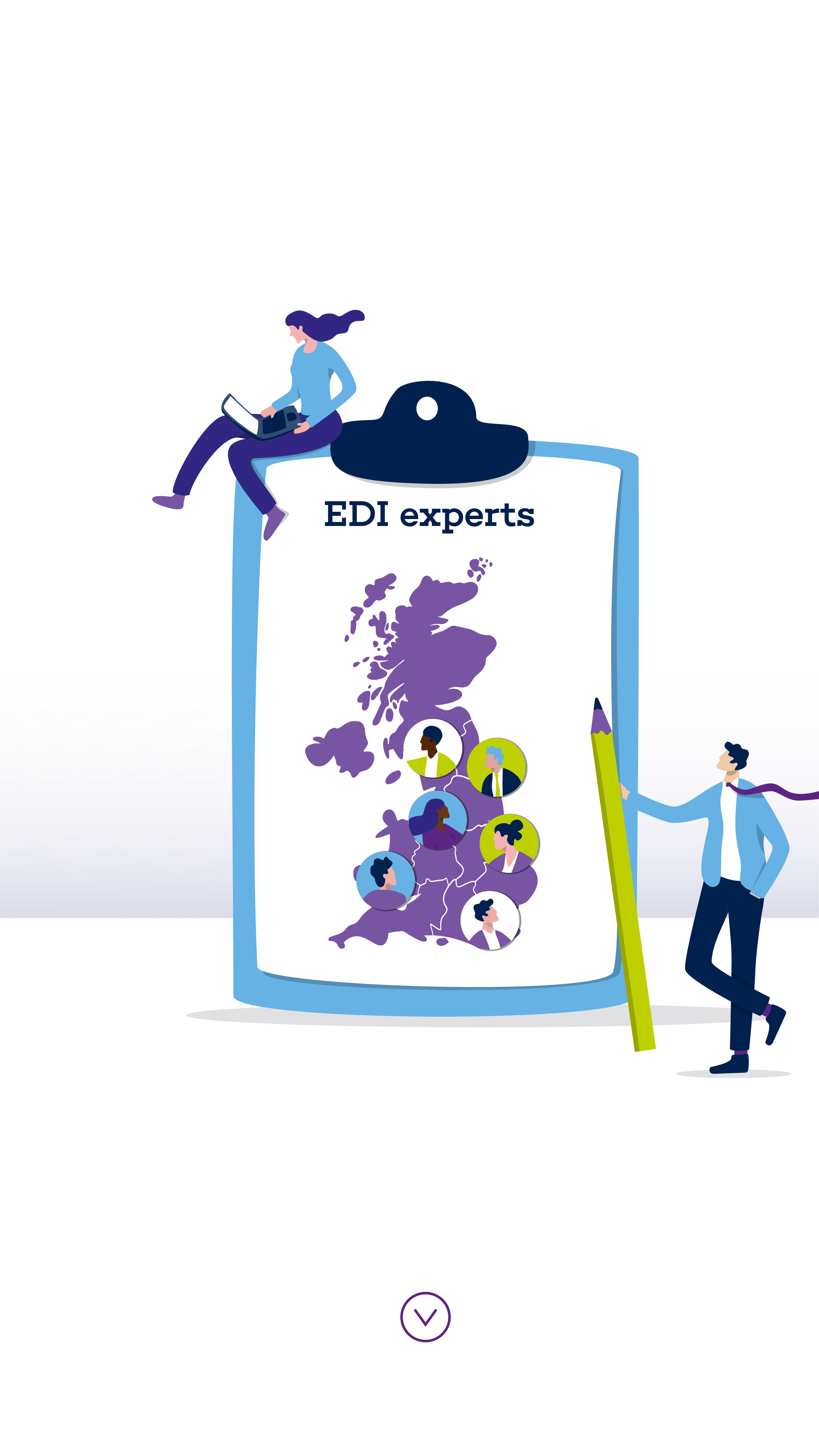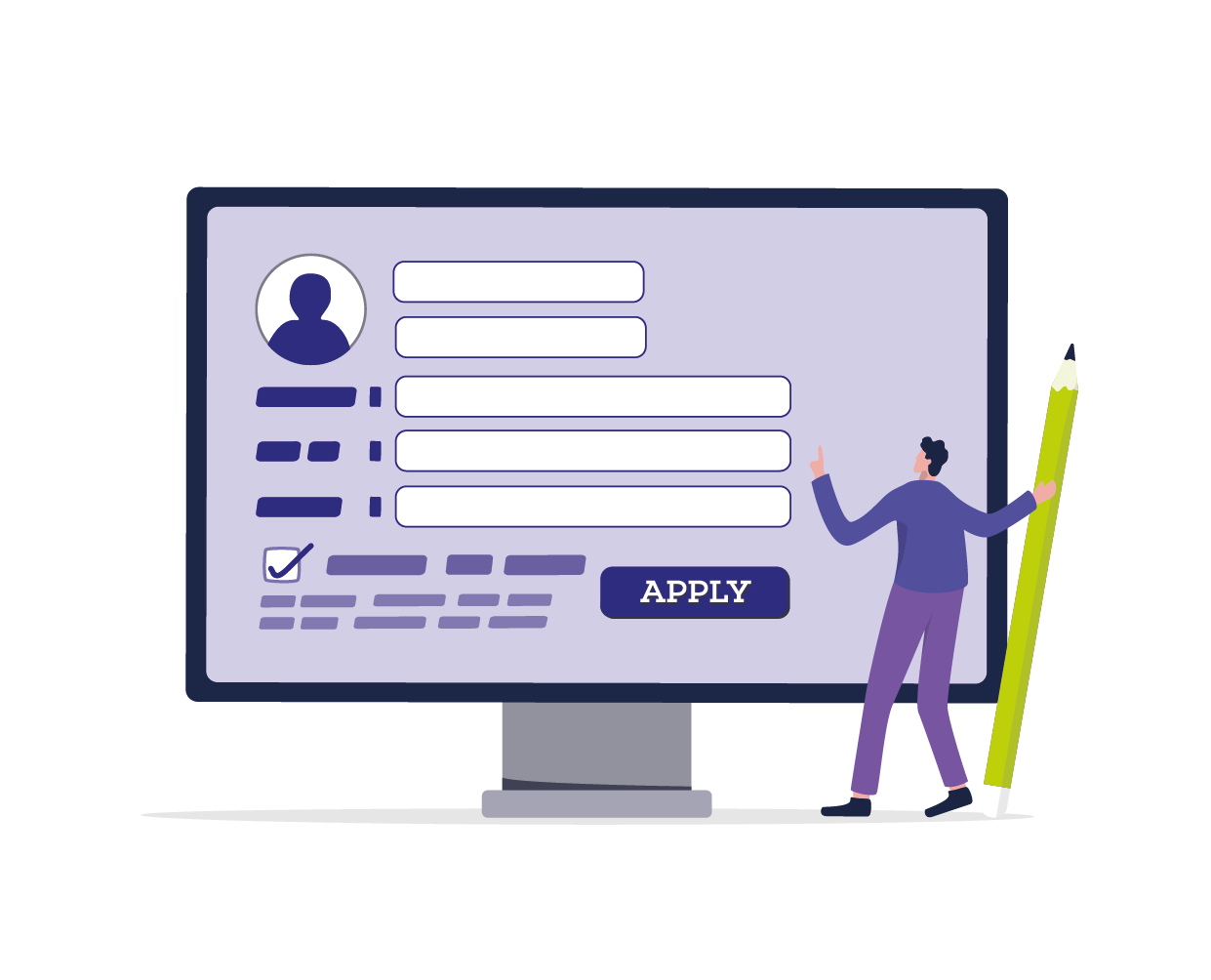Giving a voice to equality, diversity and inclusion

Journalist Nic Paton reports on NAHT’s pilot of regional equality representatives, a key step in its initiative to advance equality, diversity and inclusion.
For some time now, NAHT’s equality, diversity and inclusion (EDI) work has been focused on three core goals:

1) To support members as leaders.
In other words, to enable and support school leaders to create inclusive learning and working environments for all their pupils and staff, environments that welcome diversity and champion equality.

2) To support members as individuals.
In other words, to support, protect and celebrate members with protected characteristics, including campaigning to remove systemic inequities or aiding individual members who are experiencing particular issues in their workplace.

3) To support, empower and improve NAHT itself as a democratic organisation.
In other words, to ensure NAHT’s democratic structures are inclusive and reflect the diversity of the profession, the educational professionals and learners that it serves as a union.
At a practical level, one way these aspirations have been given a voice is through the formation of three member-led equality networks: the Leaders for Race Equality Network, the Disabled Members’ Network and the LGBT+ Network.
These provide members with spaces to support each other and share knowledge and experiences. They have also acted as vehicles to amplify network members’ voices within NAHT, ensuring equality, equity, diversity and inclusion are part of the conversation within NAHT’s wider campaigning and policy work and beyond.

PAUL WHITEMAN,
NAHT GENERAL SECRETARY
The networks have been a success but, emphasises NAHT general secretary Paul Whiteman, they were always intended to be the first step. The next stage is to pilot the establishment of a network of equality reps at a regional level over the coming months.
“This is the next natural step in our progress on equalities and inclusion,” Paul tells Leadership Focus. “Five or six years ago, we didn’t have any real structure around equalities, something we’ve worked to tackle through establishing the member-led networks. We now have some real excitement around what we’re doing and a sense we’re on the right track.
“What we want to be doing as a union is making sure our policy objectives consider equality at both a national and local level. The reps will be a reminder to us that those conversations are taking place and need to take place.
“So, this is very much a natural progression in terms of reaching our ambitions. It is about putting something more tangible in place, making sure we have people at the regional level thinking about how we embed and mainstream the debate around equality,” he adds.


PAUL WHITEMAN,
NAHT GENERAL SECRETARY
The networks have been a success but, emphasises NAHT general secretary Paul Whiteman, they were always intended to be the first step. The next stage is to pilot the establishment of a network of equality reps at a regional level over the coming months.

“This is the next natural step in our progress on equalities and inclusion,” Paul tells Leadership Focus. “Five or six years ago, we didn’t have any real structure around equalities, something we’ve worked to tackle through establishing the member-led networks. We now have some real excitement around what we’re doing and a sense we’re on the right track.
“What we want to be doing as a union is making sure our policy objectives consider equality at both a national and local level. The reps will be a reminder to us that those conversations are taking place and need to take place.
“So, this is very much a natural progression in terms of reaching our ambitions. It is about putting something more tangible in place, making sure we have people at the regional level thinking about how we embed and mainstream the debate around equality,” he adds.
So, what’s happening? Why is this important to prioritise given everything else that school leaders are currently grappling with, and, most of all, how might you, as an NAHT member, get involved?

NATALIE ARNETT,
NAHT SENIOR EQUALITIES OFFICER
To the ‘what’ first, NAHT will establish a network of equality reps between now and the autumn. As NAHT senior equalities officer Natalie Arnett explains, these reps are intended to be NAHT’s ‘EDI experts on the ground’.
She adds: “It is really about embedding that and supporting members at a branch and regional level with the EDI piece.”
The application process is running until the end of July – see the section at the end for how to apply if you’re interested in becoming a rep or being involved. Then, there will be a process of bedding in and training, with an in-person training day in the autumn and an online training event next spring.

NATASHA NICHOLSON,
NAHT REGIONAL HEAD (NORTH EAST)
The intention is to have one equality rep per region or devolved nation, with the initiative running as a one-year pilot initially. However, the hope is that it will become a permanent fixture for members at a local level. “The aim is for reps to work collaboratively with their regional teams,” emphasises Natasha Nicholson, NAHT regional head (north east), who is helping to drive the process along.
“Their role will be to act as an equalities advocate, to work with branches and regions to identify trends, to try to move the equalities agenda forward and to make sure when we’re looking at bargaining and policies, for example, that there is an equalities remit,” she adds.
The reps will work to raise the profile of the equality agenda within their regions, acting as local ‘experts’, promoting diversity and seeking ways to tackle underrepresentation (within the profession and NAHT itself). They will also support NAHT’s work to eradicate discrimination and/or harassment in the sector.















NATALIE ARNETT,
NAHT SENIOR EQUALITIES OFFICER
To the ‘what’ first, NAHT will establish a network of equality reps between now and the autumn. As NAHT senior equalities officer Natalie Arnett explains, these reps are intended to be NAHT’s ‘EDI experts on the ground’.
She adds: “It is really about embedding that and supporting members at a branch and regional level with the EDI piece.”
The application process is running until the end of July – see the section at the end for how to apply if you’re interested in becoming a rep or being involved. Then, there will be a process of bedding in and training, with an in-person training day in the autumn and an online training event next spring.

NATASHA NICHOLSON,
NAHT REGIONAL HEAD (NORTH EAST)
The intention is to have one equality rep per region or devolved nation, with the initiative running as a one-year pilot initially. However, the hope is that it will become a permanent fixture for members at a local level. “The aim is for reps to work collaboratively with their regional teams,” emphasises Natasha Nicholson, NAHT regional head (north east), who is helping to drive the process along.
“Their role will be to act as an equalities advocate, to work with branches and regions to identify trends, to try to move the equalities agenda forward and to make sure when we’re looking at bargaining and policies, for example, that there is an equalities remit,” she adds.
The reps will work to raise the profile of the equality agenda within their regions, acting as local ‘experts’, promoting diversity and seeking ways to tackle underrepresentation (within the profession and NAHT itself). They will also support NAHT’s work to eradicate discrimination and/or harassment in the sector.
In practice, this will likely include raising awareness of and talking about NAHT’s member-led equality networks. Reps will be expected to be aware of harassment, discrimination and/or general equality issues in the region and to be supporting national work to monitor themes or trends.
They will also be expected to actively support NAHT’s EDI strategy at local and regional levels (including ensuring equality aspects are considered in the development of regional plans) and promote equality issues in local campaigns and activities. However – and importantly – equality reps will not be required to undertake casework or represent members, although they may provide support and advice to those undertaking that role.
The reps will be supported by other union reps, NAHT’s regional teams and NAHT’s senior equalities officer. In addition to the introductory training already outlined, reps will have access to training led by the Trades Union Congress (TUC). There will be regular online meetings to share experiences and discuss new ways to embed equality within NAHT. There will also be the opportunity to access parts of NAHT’s national training programme for officials.
“Of course, we want it to be a functioning, meaningful role, but it is one of those things; you can make it as big as you want,” says Natasha in terms of the likely time commitment involved. “There will be training (in-person and online) and ongoing support offered. Other than that, it means attending your half-termly regional executive meetings to give an update on any key pieces of work, initiatives or priorities, which will normally be a couple of hours every half-term.
“We’re trying to make those meetings as accessible as possible too, especially in terms of the time of day, and offering hybrid options where we can. People can also provide a written report if they can’t attend. So, really, it is about putting into it as much as you feel able,” she adds.
Finally, why is this agenda important? In the grand scheme of the multiple crises school leaders are currently grappling with – workload, retention, pay, well-being, inspection, funding, special educational needs and disabilities, and so on – why is this something members should prioritise?
“This isn’t something incidental or tangential to our priority campaigning work; this is important and integral to that,” Paul emphasises. He points out that equity, in particular – with its notions of promoting fairness and justice and addressing imbalances – is at the heart of what NAHT is working to achieve through its broader campaigning work.
For instance, Paul highlights how EDI clearly connects to NAHT’s campaigning work around the reform of Ofsted and high-stakes accountability and inspection. “When we’re talking about Ofsted, when we’re developing our policies around an approach towards Ofsted, if we consider our campaign goals in the context of EDI, that provides an extra level, an extra nuance,” he points out.
“Are we, for example, holding Ofsted’s feet to the fire in terms of ensuring it is making reasonable adjustments if a member needs that when it comes into a school? Or considering the impact of the process of high-stakes inspection on, say, someone who is neurodiverse?
“Yes, finding the solutions to the various pressing crises school leaders are dealing with is complex and multifaceted. But all our priority campaigns have an impact on and are impacted by inequity and inequalities. So, very definitely, we need to consider these issues within our campaigns, and our new network of equality reps will be a key part of that,” Paul adds.











In practice, this will likely include raising awareness of and talking about NAHT’s member-led equality networks. Reps will be expected to be aware of harassment, discrimination and/or general equality issues in the region and to be supporting national work to monitor themes or trends.
They will also be expected to actively support NAHT’s EDI strategy at local and regional levels (including ensuring equality aspects are considered in the development of regional plans) and promote equality issues in local campaigns and activities. However – and importantly – equality reps will not be required to undertake casework or represent members, although they may provide support and advice to those undertaking that role.
The reps will be supported by other union reps, NAHT’s regional teams and NAHT’s senior equalities officer. In addition to the introductory training already outlined, reps will have access to training led by the Trades Union Congress (TUC). There will be regular online meetings to share experiences and discuss new ways to embed equality within NAHT. There will also be the opportunity to access parts of NAHT’s national training programme for officials.

“Of course, we want it to be a functioning, meaningful role, but it is one of those things; you can make it as big as you want,” says Natasha in terms of the likely time commitment involved. “There will be training (in-person and online) and ongoing support offered. Other than that, it means attending your half-termly regional executive meetings to give an update on any key pieces of work, initiatives or priorities, which will normally be a couple of hours every half-term.
“We’re trying to make those meetings as accessible as possible too, especially in terms of the time of day, and offering hybrid options where we can. People can also provide a written report if they can’t attend. So, really, it is about putting into it as much as you feel able,” she adds.
Finally, why is this agenda important? In the grand scheme of the multiple crises school leaders are currently grappling with – workload, retention, pay, well-being, inspection, funding, special educational needs and disabilities, and so on – why is this something members should prioritise?

“This isn’t something incidental or tangential to our priority campaigning work; this is important and integral to that,” Paul emphasises. He points out that equity, in particular – with its notions of promoting fairness and justice and addressing imbalances – is at the heart of what NAHT is working to achieve through its broader campaigning work.
For instance, Paul highlights how EDI clearly connects to NAHT’s campaigning work around the reform of Ofsted and high-stakes accountability and inspection. “When we’re talking about Ofsted, when we’re developing our policies around an approach towards Ofsted, if we consider our campaign goals in the context of EDI, that provides an extra level, an extra nuance,” he points out.
“Are we, for example, holding Ofsted’s feet to the fire in terms of ensuring it is making reasonable adjustments if a member needs that when it comes into a school? Or considering the impact of the process of high-stakes inspection on, say, someone who is neurodiverse?
“Yes, finding the solutions to the various pressing crises school leaders are dealing with is complex and multifaceted. But all our priority campaigns have an impact on and are impacted by inequity and inequalities. So, very definitely, we need to consider these issues within our campaigns, and our new network of equality reps will be a key part of that,” Paul adds.

HOW TO APPLY
The pilot will be open to all NAHT regions, with the aim of having one representative per region.
The role of equality rep will be open to any member of NAHT who can advocate for underrepresented communities.
To apply, simply complete the application form and return it to policy@naht.org.uk by Wednesday 31 July 2024.
Applications will then be shared with NAHT’s regional executives for review, with an aim to confirm appointments during September 2024.


HOW TO APPLY
The pilot will be open to all NAHT regions, with the aim of having one representative per region.
The role of equality rep will be open to any member of NAHT who can advocate for underrepresented communities.
To apply, simply complete the application form and return it to policy@naht.org.uk by Wednesday 31 July 2024.
Applications will then be shared with NAHT’s regional executives for review, with an aim to confirm appointments during September 2024.

